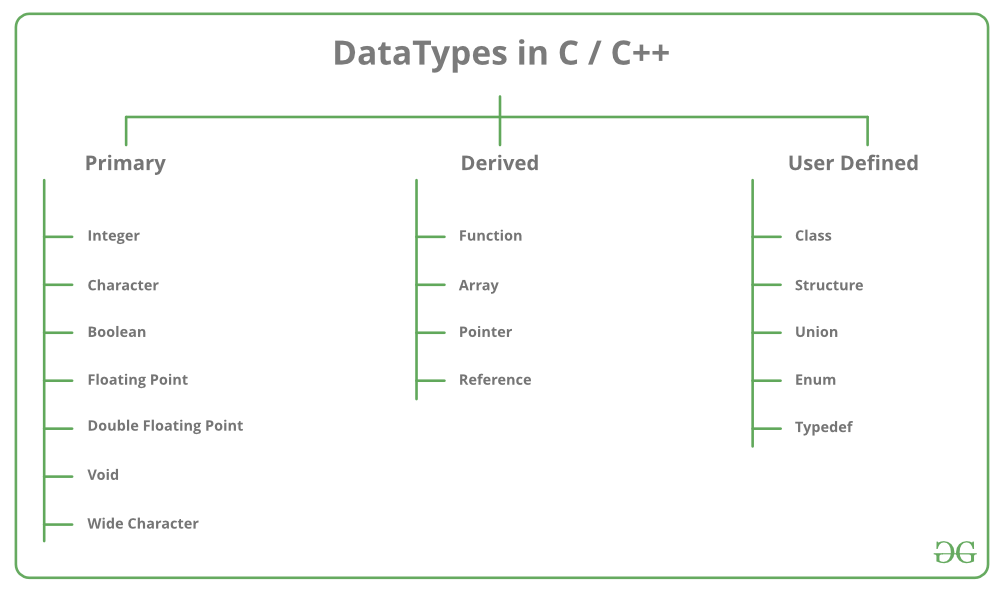Data Types in C++

In C++, data types define the type of data that a variable can hold. They specify the size and format of the data, which determines how the data is stored in memory and how it can be manipulated. C++ provides a variety of built-in data types to accommodate different kinds of data. Here are the main data types in C++:
Primitive Data Types:
int: Typically a 32-bit signed integer.short: Typically a 16-bit signed integer.long: Typically a 32-bit or 64-bit signed integer.long long: Typically a 64-bit signed integer (introduced in C++11).float: Single-precision floating-point type.double: Double-precision floating-point type, generally more precise than float.long double: Extended-precision floating-point type (implementation-defined).char: Typically an 8-bit character.wchar_t: Wide character type (wide-character encoding).bool: Represents boolean values, either true or false.Derived Data Types:
type *ptr: Declares a pointer to a variable of type type.type &ref = var: Declares a reference ref to variable var of type type.type array_name[size]: Declares an array of size elements of type type.User-Defined Types:
struct): Aggregate data types that can hold multiple variables of different types.
struct Person { string name; int age; };enum): Used to define a set of named integer constants.
enum Color { RED, GREEN, BLUE };Type Modifiers:
const: Specifies that the value of a variable cannot be changed after initialization.volatile: Indicates that the value of a variable may be changed by external factors (e.g., hardware).mutable: Allows modification of a member variable of a const object.signed and unsigned: Specify whether integer types can represent negative values (signed) or only non-negative values (unsigned).typedef: Creates an alias for an existing data type.
typedef int feet; creates an alias feet for int.
These are the main data types in C++. Understanding their characteristics and appropriate usage is essential for writing robust and efficient C++ programs.
Thank you,